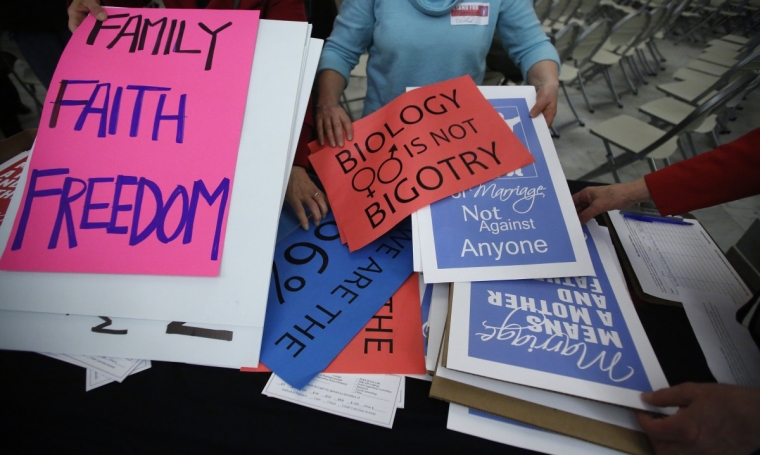Socially conservative Republicans at 10-year low, Gallup says

PRINCETON, N.J. (Christian Examiner) – Republican candidates may find it significantly harder to be elected to office if they rely exclusively on the party's traditional, socially conservative base for support, according to a new poll from Gallup.
In fact, significantly fewer Republicans find it necessary to maintain socially conservative views while upholding traditional Republican ideas on economics and politics. According to Gallup, the percentage of Republicans and "Republican-leaning independents" who are both economically and socially conservative has dropped to 42 percent.
That figure, according to Gallup's director Frank Newport, is the lowest it has been since 2005.
"This change in recent years has been significant," Newport writes. "The percentage of Republicans identifying as conservative on both dimensions (social and economic) has dropped 15 percentage points since 2012, largely offset by an increase in the percentage who identify as moderate or liberal on both dimensions.
"Still, the current ideological positioning of Republicans is not unprecedented; the proportion of social and economic conservatives was as low or lower from 2001 through 2005," Newport said.
A GOP candidate positioning himself or herself as conservative on both social and economic issues theoretically will appeal to less than half of the broad base of rank-and-file party members.
The age of survey respondents is a key factor in the study. Younger Republicans tend to be socially moderate – even liberal – while older Republicans are firmly more conservative.
According to Gallup's analysis, the size of the socially and economically conservative group is twice as large among survey respondents 65 and older than the group aged 18-29.
"This may be good news for GOP candidates who are running on a conservative platform and can assume that older Republicans will constitute a sizable portion of primary and caucus voters. But it would not be such good news when it comes to the challenge of energizing a broader base of Republican voters to come out to vote in the typically higher-turnout general election," Newport writes.
At play in the primaries will most certainly be the political fallout over the Supreme Court's decision on same-sex marriage, which is expected at the end of its session this month. Even though the court will have decided, candidates will likely be locked in ideological arguments over the ruling. Listening will be the majority of young Republican voters, which Gallup says lean socially moderate or liberal.
"A GOP candidate positioning himself or herself as conservative on both social and economic issues theoretically will appeal to less than half of the broad base of rank-and-file party members," Newport writes.
According to the findings of the recent poll, Newport writes that the second largest voting bloc among Republicans see themselves as both socially and economically moderate, at 24 percent. Another 20 percent see themselves as liberal socially, but conservative economically.
A recent article in the Washington Times claimed younger Republicans believed some Democrats would defect from their party if the GOP was not hostile to same-sex marriage.
"There are a lot of LGBT people out there who are brilliant small business owners, who hold to the principles of limited government, strong families, fiscal conservatism and strong national security — things that we as Republicans love — but they don't have a place in the Republican Party right now," Jerri Ann Henry, campaign manager for Young Conservatives for the Freedom to Marry, told the Washington Times. "What's unfortunate is they also clearly do not have a place in the Democratic Party."
Henry's group wants to remove "anti-gay language" presently listed in the Republican Party's platform and replace it with a statement on tolerance, "strong families" and limited government.
The Republican Party Platform contains a section which reads:
"The institution of marriage is the foundation of civil society. Its success as an institution will determine our success as a nation. It has been proven by both experience and endless social science studies that traditional marriage is best for children. Children raised in intact married families are more likely to attend college, are physically and emotionally healthier, are less likely to use drugs or alcohol, engage in crime, or get pregnant outside of marriage. The success of marriage directly impacts the economic well-being of individuals. Furthermore, the future of marriage affects freedom. The lack of family formation not only leads to more government costs, but also to more government control over the lives of its citizens in all aspects. We recognize and honor the courageous efforts of those who bear the many burdens of parenting alone, even as we believe that marriage, the union of one man and one woman must be upheld as the national standard, a goal to stand for, encourage, and promote through laws governing marriage. We embrace the principle that all Americans should be treated with respect and dignity."